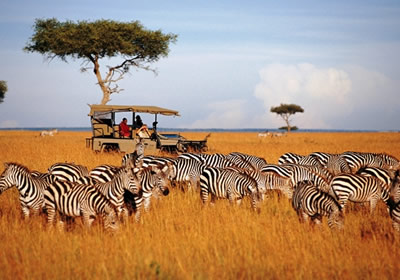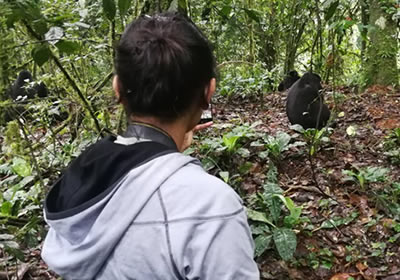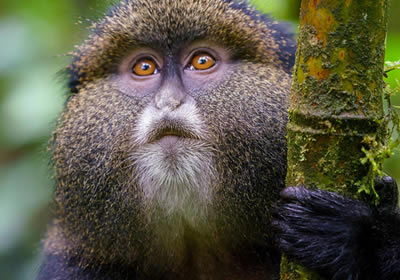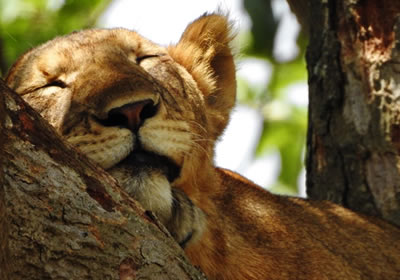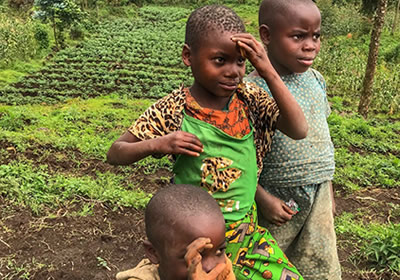Kenya offers the best safari adventures in Africa covering wildlife viewing, unique and in-depth cultural tours, the unique seasonal wildebeest migration and so much more. Kenya is where the world’s famous Masai Mara national park is found, featuring millions of wildebeest, scenic Rift Valley Rivers, Lakes including Naivasha, Baringo; big five 5 game and above all, the most breathtaking landscape, distinct cultures of the Masai people. For nature loving travelers on safari in Africa, no better place is worth visiting than Kenya when it comes to authentic wilderness experiences and cultural encounters.
Priding herself as the second biggest East African state, Kenya is home several stunning National Park, Reserves and due to her strategic location, Kenya safari holidaymakers stand a chance to also explore and experience the Indian Ocean coast. The Indian Ocean coast of Kenya features exceptional historical ports, offering insight into the Asian and Arab trade. Besides, think of the finest sand beaches and think not beyond Kenya.
In the Western side, Kenya features the most scenic Lakes, Forests, Rivers. The Northern region of the Magical Kenya boasts of its beautiful semi-desert and desert experiences. In general, Kenya safaris are worth booking while on an African safari-visitors have not only diverse wildlife to encounter but also unspoiled travel destinations.
The beauty about Kenya safaris is that visitors can choose to undertake budget or luxury safari holiday. All safaris in Kenya are amazingly affordable and guarantee visitors remarkable wildlife experiences from the big five game to wildebeest migration in the Masai Mara National Reserve, educative cultural safari from Masai to European-Asian immigration ethnic diversity, mountaineering/climbing/hiking adventures to interesting water sports.
Why visit Kenya?
The rich wildlife at the different wildlife parks counts for the highest numbers to travelers into Kenya. The country is splendid with the best wildlife views and beautiful culture.
Masai Mara National Reserve
Masai Mara National Reserve is notably Kenya’s prime tourist destination attracting thousands of nature lovers each year to explore and experience not only the big five game but also immerse themselves into wilderness while on wildebeest migration safari. The renowned Mara Reserve is visited mostly for wildebeest migration experience that is enjoyed once in a year.
Game viewing in the Masai Mara National Reserve is open to all holidaymakers throughout the year. The Great Migration is best witnessed from June to October though this is also a little challenging to determine the fact that wildebeest movement often depends on rain conditions. From June to October, about 1.5 million wildebeest from the Serengeti to Mara ecosystem migrate from the Masai Mara National Reserve to Serengeti National Park.
In addition to over 95 mammal species, Masai Mara National Reserve also protects about 570 bird species. These include black bellied hartlaub’s bustards, grey kestrel, Jackson’s bustards, Ross’s turacos, super winged schawlow’s turacos, ostriches, Pel’s fishing owl, lilac breasted rollers, African pygmy falcons.
Birding Tours
Kenya features among the only 15 countries in the world with over 1000 species of birds. In Africa, it is the 3rd on the avian diversity list just after Tanzania and D.R. Congo. These include 2 biggest birds in the world including the common and Somali ostriches, Kori bustard plus variety of raptors, bee-eaters, parrots etc. The bird species to expect to spot on birding safari holiday in Kenya include among others European rollers, purple grenadier, vulture guinea fowl, lesser & greater flamingos, lappet faced vultures, saddle billed stork, Ruppell’s vulture, grey headed kingfishers, superb starling, white pelican, yellow billed hornbill, black chested snake eagle etc.
Bird watching in Kenya can be conducted anywhere but the most important birding areas worth visiting for birding tour include Lake Nakuru National Park, Amboseli National Park, Masai Mara National Reserve, Samburu-Buffalo Springs, Kakamega Forest, Saiwa Swamp, Bogoria, Naivasha, Baringo. If you are interested in coastal endemic birds, then the best places to consider a must-visit include Arabuko-Sokoke National Park. The park protects lots of Sokoke pipit, grey crested helmet shrike, Sokoke scops owl, Clarke’s weaver.
Beach & bush safari experience
Kenya is one of the very few destinations that offer the most memorable beach and bush safari experiences. A bush and beach holiday is a perfect way to explore and experience the Magical Kenya. Kenya boasts of its finest beaches with beautiful beach resorts set along Watamu, Diani and Malindi etc.
Big 5 safari
Kenya is incredibly a complete big five game safari destination. For any nature loving traveler on Kenya safari, the big five game are must-see-these include lions, buffaloes, rhinos, elephants and leopard. The best places to see the big 5 game while on Kenya safaris include Lake Nakuru National Park, Masai Mara National Reserve, Meru National Park, Amboseli National Park, Tsavo West & East National Park, Samburu-Buffalo Springs-Shaba, Laikipia etc.
Cultures and people
Kenya is a beautiful country offering more than astonishing wildlife encounter and birding tours. Over 40 distinct ethnic groups are in Kenya and they offer the most distinct cultural experiences. On a cultural tour in Kenya, the visitor cultural experience covers exploring people’s distinct cultures, traditions, norms, lifestyles, get entertained from the local dances, music performances etc. The major tribes to interact with include the Masai, Turkana, Kikuyu, Kamba, Rendille, Luo, Samburu etc.
When is the best time to visit Kenya-East Africa
Most of the Kenya safari destinations (including all National Parks in Kenya) are best visited during the dry season (months) of the year. That is; from June, July, August, September and October. These the best months of the year to visit Kenya for game or wildlife viewing. Wildebeest migration experience in the Masai Mara National Reserve is best enjoyed between August and late October. This is the period when most of the wildebeest migrate back to the Serengeti National Park in Tanzania. The best time to visit all Kenya National Park is during the drier months of June, July, August, September and October or January, February.
The peak/high season in Kenya often occurs from June to November, January to February. This is the period when most National Parks in Kenya experience crowds for instance Lake Nakuru National Park, Amboseli National Park and Masai Mara National Reserve. The low/off season starts from March to May and the best months with the best weather; June, July, August, September to October-the months when most National Parks in Kenya record the least or no rains. The worst weather is usually experienced from March, April to May.
Cost of a Kenya Safari
The cost of a Kenya safari varies depending on the a number of factors. But on average, a Kenya safari can cost a visitor up to USD180 to USD250 per day excluding great services & quality facilities. Kenya safari usually covers transportation, park entry fees, accommodation, meals etc. A mid-luxury/midrange Kenya safari can cost visitors from USD290 to USD500 per person per day. These are ideal for honeymoon holidaymakers or nature lovers with plans to visit Kenya for wildlife safaris with their families. This category of Kenya safari includes spending a night in a 4 or 5 star accommodation.
The luxury Kenya safari costs USD from 600 per person per day and includes spending a night in one of the best luxury hotels or suits in Kenya. This category of Kenya safari tour provides royal treatment to holidaymakers and comes with amazing services.
The costs for accommodation also varies depending on type. The 3 Star Hotel in Kenya costs as low as USD50 a night, 4 Star room costs from USD100 to USD200 per night and 5 Star ranges from USD 200 to USD800 per night. Some of the factors that influence Kenya safari costs include the number of the flights, mode of getting around in Kenya, season of the year, choice of camp or accommodation etc.
Wildlife to visit in Kenya
Kenya is known to offer the best of African wildlife viewing experience. It boasts of its diverse wildlife species including the big five (buffaloes, rhinos, elephants, leopards and lions), cheetahs, hyenas, zebras, gazelles, reticulated giraffes, fridge eared oryx, wildebeest, hippos, elands, waterbucks, impalas, crocodiles.
Other interesting wildlife to see in Kenya include dik-dik, lesser kudu, gerenuk, Masai giraffes etc. The popular National Parks and Reserves in Kenya include Amboseli, Masai Mara National Reserve, Samburu-Buffalo Springs, Tsavo East & West National Parks, Laikipia, Meru National Park-These host most or all the Big 5 Game-the black rhinos, leopards, elephants, buffaloes and lions.
Is Kenya safe for tourists?
Kenya is a safe country to travel to with a well-managed and established tourism sector protected by the government. All destinations are well guarded and protected because tourism is one of the country’s largest foreign exchange earner. Each year, over a million tourists visit Kenya and there are professional guides to take you through Kenya safari. What is required of you is observe the instruments while on Kenya safari holiday especially while on a big game safari and while on self drive tour in Kenya, your rental car should be left at the designated areas.
Kenya visa requirements and fees
Visas are essential if you are to be allowed to have entry into Uganda. To all visitors planning to visit Kenya, valid passport must be presented on arrival at the port of entry into Kenya. It should be valid till 6 months. All visa applicants who apply for a Kenya evisa online must have a valid passport which should be valid for 6 months, one or two blank page in the passport, evidence of an outward journey or return ticket, proof of hotel confirmation. Visas are required by most visitors to enter Kenya including all Europeans, Middle Eastern, North, Asian and South American states; Australia, New Zealand.
Single entry tourist visas-Kenya are available for visits of up to 90 days and they can be applied online. Multiple entry and non tourist visas can be applied for via a Kenya embassy/high commission back in home country. Kenya multiple entry visas cost USD100 and to apply, you need a valid passport, letter from employer or company, proof of applicant’s employment, recently taken passport size photographs in color, copy of registration etc.
Visas for 90 days stay are not needed by passport holders of some African and Caribbean states including Malawi, Uganda, Tanzania, Zimbabwe, South Africa. The East Africa tourist visa lets you to enjoy multiple entry visits not only to Kenya but also to Rwanda and Uganda. East Africa tourist visa offers multiple entries and fee USD101.
Requirements for Single entry visa Kenya include passport, recent passport, cost USD51; transit visa which lets you stay 72 hours for transit purpose require you to have valid passport 6 months, recent passport size photography in color, flight/itinerary/travel plan prepared by airline or travel agents or tour operator in Kenya, cost USD21.
Vaccination requirements for Kenya
Advised vaccines tourists require for Kenya are: Yellow fever and covid-19 vaccine. Others to consider but not mandatory for entry are: Malaria, typhoid, hepatitis A, hepatitis B, influenza, tetanus measles, polio, meningitis, mumps and others.
Packing for a Kenya safari
Some of the items any nature loving Kenya safari holidaymaker should consider packing include wide brimmed safari hat, safari cloths, cameras, insect repellent, sun glasses, daypack, bottled water, snacks, rain gear, first aid/medical kit, sweater, sun screen, visas, passport.
Tipping on Kenya safari and currency
Tipping on a Kenya safari isn’t mandatory but many do it out of their own will. The little tip you give to waitress, waiter, driver guide, park guide impacts a lot on their lives. Like others, these service providers have families and at times, their salaries delays and they aren’t paid that much. The little you give as a tip helps them meet some of the basic needs for their families. In Kenya, there is no specific currency for tipping. You can tip with Kenya shilling or in dollars, pounds etc.

